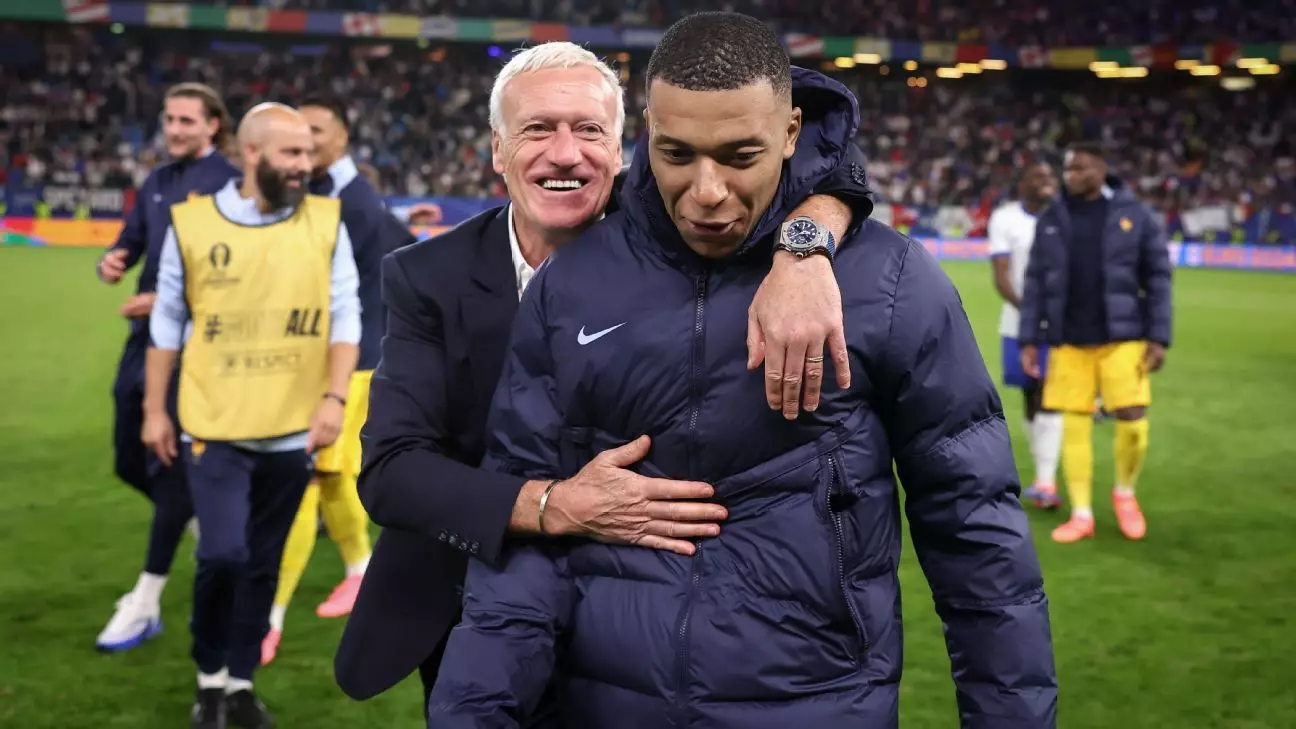As one of football’s most electrifying talents, Kylian Mbappé’s return to the French national squad comes with tremendous expectations. After his absence from previous Nations League matches, head coach Didier Deschamps confirmed that the 26-year-old striker will don the blue jersey once more for the quarterfinals against Croatia, scheduled this coming March. This decision marks a potential turning point for both Mbappé and the national team, especially as they prepare to compete at a high level within an increasingly dense football calendar.
Mbappé’s previous omissions from the national lineup, notably during the October and November fixtures, created ripples among fans and analysts alike. His move to Real Madrid over the summer appeared to usher in new challenges, including a mingling of personal and professional turbulence. Deschamps acknowledged the considerable transition Mbappé underwent during this period, highlighting the complexities of the striker’s experiences — ranging from back injuries to the psychological impacts stemming from his time in Paris, capped off by a broken nose during the Euro.
Deschamps emphasized that such multifaceted factors affected not only Mbappé’s athletic performance but also his mental state. “Few holidays, little preparation, and six complicated months—these elements can weigh heavily on an athlete,” he elaborated. This statement serves to humanize Mbappé, reminding both supporters and critics that behind the accolades lies a player grappling with realistic challenges.
Commitment to the National Team
Despite his absence, Mbappé reaffirmed his commitment to the French team, illustrating his dedication to representing the nation on the international stage. His attitude reflects a broader sentiment among elite players who are increasingly aware of the pressures inflicted by a grueling fixture schedule. Injuries, fatigue, and psychological tolls have all become part of the modern footballer’s narrative, making Mbappé’s determination to return all the more significant.
Deschamps’ commentary regarding Mbappé’s status not just speaks to the player’s resilience but also offers a glimpse into the dynamics within the team. While there may have been discussions concerning Mbappé’s leadership role during his absence, Deschamps remains confident in the forward’s capabilities. “This does not call into question his leadership,” he stated, signaling a respect for Mbappé’s ongoing influence within the squad.
As the national team gears up for the March fixtures, these preparations occur alongside significant changes on the coaching front. With Deschamps set to step down after the 2026 World Cup, conversations surrounding potential successors have gained momentum. Notably, Zinedine Zidane has emerged as a top candidate, a consideration that highlights the importance of stability and continuity for the future of French football.
Kylian Mbappé’s impending return encapsulates not just the needs of the French national team, but also the aspirations of an athlete ready to overcome his struggles. As he re-enters the squad, both the coaching staff and fans are eager to see how this dynamic player will contribute to France’s ambitions on the international stage. The journey ahead looks promising, provided that Mbappé remains healthy and motivated.

Leave a Reply